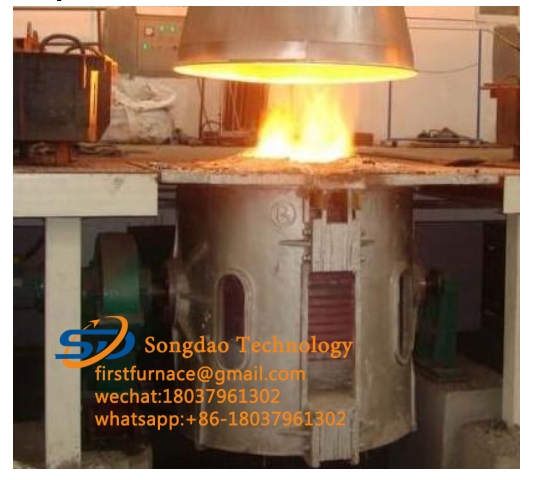- 18
- May
What should I do with the overcurrent protection when the induction melting furnace is at full power output?
What should I do with the overcurrent protection when the indukční tavicí pec is at full power output?
1. Fenomén selhání
The inverter fails when the intermediate frequency power is output at full power, and the overcurrent protection is activated. At low power output, the intermediate frequency suddenly drops, Ua decreases and Id increases.
2. Failure analysis and treatment
According to the fault phenomenon, it is preliminarily judged that one bridge arm of the inverter bridge is not conductive. If the No. 3 bridge arm is not conductive, the No. 4 bridge arm cannot be turned off.
Observing U4 with an oscilloscope is also a straight line. The voltage of the No. 3 bridge arm is equal to the load voltage, so the U3 waveform is a complete sine wave. When the above-mentioned fault occurs, first determine whether the thyristor is not conducting or the other part of the bridge arm is open.
If the thyristor is not conducting, the oscilloscope can be used to further determine whether the trigger circuit is faulty, the thyristor control pole is faulty, or the line is faulty.
First use an oscilloscope to check whether there is a trigger pulse on the bridge arm and whether the trigger pulse is normal. If the trigger pulse is not normal, the fault lies in the trigger circuit. The switch should be set to the inspection position, and the waveforms of each part of the trigger circuit should be checked step by step to find the fault. point. If the trigger pulse is normal, use a multimeter to check whether the control pole of the thyristor is open or short.
If it is normal, check the resistance between the control electrode and the cathode of the thyristor. If the internal resistance of the control pole is too large, replace the thyristor.
If the thyristor is constantly off, check whether the group of thyristors that are off is short-circuited. If it is normal, check whether the turn-off time of the thyristor is too long.

